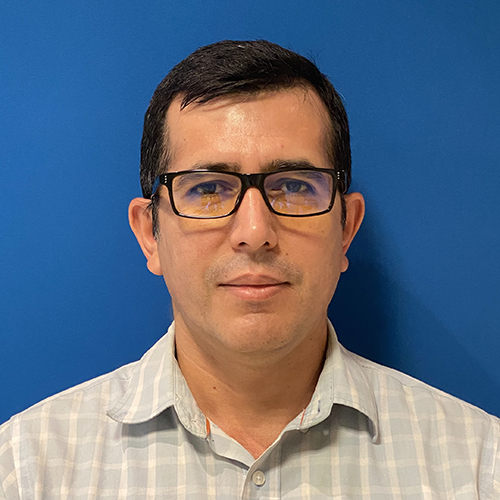
Jose Valentin Osuna Enciso
PhD in Computer Sciences






|
|---|
As an accomplished professional with a track record of success in research, teaching, and the electronics manufacturing industry, I am committed to driving continuous improvement and achieving results. With a collaborative mindset and a passion for learning, I thrive on working with diverse teams to deliver outstanding outcomes.
My expertise in time management, organization, and effective communication enables me to excel in any work environment. Whether facing tight deadlines or challenging conditions, I remain focused on achieving quality results.
As a current holder of an open work permit in Canada, I am excited about exploring new opportunities and making meaningful contributions to your organization.
I am a highly-educated professional with a strong background in electronics and computer science. In 1999, I earned a B.S. degree in Electronics with a specialization in Digital Systems from the Instituto Tecnologico del Mar en Mazatlan. I went on to obtain an M.Sc. degree in Electronic Engineering and Computation from the Universidad de Guadalajara in 2010, followed by a doctoral degree in Computer Sciences from the Centro de Investigacion en Computacion IPN in Mexico DF in 2013.
Throughout my academic journey, I have developed a keen interest in artificial intelligence, metaheuristics for optimization, and digital image processing. My in-depth knowledge of these subjects allows me to bring a unique perspective to any project or team.
During my tenure as a Project Consultant at the University of British Columbia in Vancouver, Canada, I led the programming of the modeling of Optimal Classification Trees (OCT) using a Differential Evolution (DE) algorithm. The OCT model allowed us to build univariate decision trees with various depths, while DE algorithm optimized the search space in which the model was developed. I proposed the configuration of the candidate solution and limits of the search space, which I named OCT-DE. Additionally, I transformed over 50 datasets from the UCI database from categorical/binary to real-valued and scaled them for analysis. By applying OCT-DE to these datasets, I found that it outperformed other algorithms, including CART and OCT optimized with commercial software (Gurobi), in terms of time and quality of the resulting tree. Based on these findings, I outlined the organization of a paper to be written, titled "Evolutionary Algorithms for Decision Tree Learning."
From February 2014 to June 2022, I served as an Associate Professor at the Universidad de Guadalajara in Guadalajara, Jalisco, Mexico, conducting research in Evolutionary Computation and Digital Image Processing. During this time, I authored more than 40 scientific documents, including publications in scientific journals and book chapters. My primary research focus in digital image processing was on image segmentation using the thresholding technique. To solve the underlying optimization problem, I utilized various metaheuristic approaches, such as Electromagnetic Field Optimization, Artificial Immune System optimization, Artificial Bee Colony optimization, Differential Evolution, Particle Swarm optimization, and Genetic Algorithms. Additionally, I explored other significant image processing problems, such as homography estimation, digital 2D filters design, and detection of simple geometric primitives.
In my role as Associate Professor, I taught various courses to undergraduate and graduate students, including Introduction to programming using Python, Parallel programming in GPUs, Scientific Research Methodology, and Topics of computer graphics. I prepared and implemented course materials, evaluated and graded students' work, and initiated, facilitated, and moderated classroom discussions to help students develop critical thinking skills. Additionally, I planned, evaluated, and revised curricula, course content, course materials, and methods of instruction.
During my tenure, I served on academic and administrative committees that dealt with academic issues, including serving as the President of the Programming academy, and on the Committee of Informatics degrees. I also collaborated in the creation of four postgraduate programs, including Doctorate in Water and Energy, Master in Parallel Computing, Master of Science in Water and Energy, and Master in Applied Computing, which contributed to graduating 77 students in seven years and granted $1.35 million in scholarships.
Furthermore, I developed, maintained, and taught online courses, established course websites to make updated handouts and other resources available to students, and participated in student recruitment at the postgraduate level. I reviewed journal articles for potential publication and collaborated in research with experts from Spain, Egypt, and Brazil. I participated as a jury in 31 thesis defense exams for several M. of S. and D. of S. programs, and reviewed technical feasibility of proposals sent to government funding agencies in Mexico, inspecting 10 participants' proposals.
During my Master of Electronics and Computer Sciences and Doctorate of Computer Sciences studies at the Universidad de Guadalajara and Instituto Politecnico Nacional, I focused on researching applications of evolutionary computation algorithms to solve image processing problems as optimization problems. Through my research, I wrote 11 scientific documents, including papers and book chapters, which have received more than 390 citations according to Google Scholar. I also proposed a new evolutionary computation algorithm called Allostatic Optimization, which solves optimization problems with real numbers. As recognition for my contributions, I was awarded the Best Postgraduate Thesis Award from Instituto Politecnico Nacional in 2014.
Currently, I am engaged in cutting-edge research aimed at improving ultrasound imaging through the application of metaheuristics. In addition, I am utilizing binary classification trees to develop accurate image classification algorithms that are set to be published by mid-2023.
My professional profile can be found on various platforms such as LinkedIn, ResearchGate, Orcid, and Web of Science. To date I have written code in languages and APIs such as Julia, Python, Matlab, C, and CUDA. I'm still working on my GitHub profile, starting from my most recent investigations. A comprehensive list of my published works is available on Google Scholar. I am always open to exploring job opportunities, collaborations, and thesis directions.
You may download my detailed resume here. If you wish to get in touch with me, please feel free to email me at valentin.osuna@gmail.com. Thank you for your interest!
25/03/2023